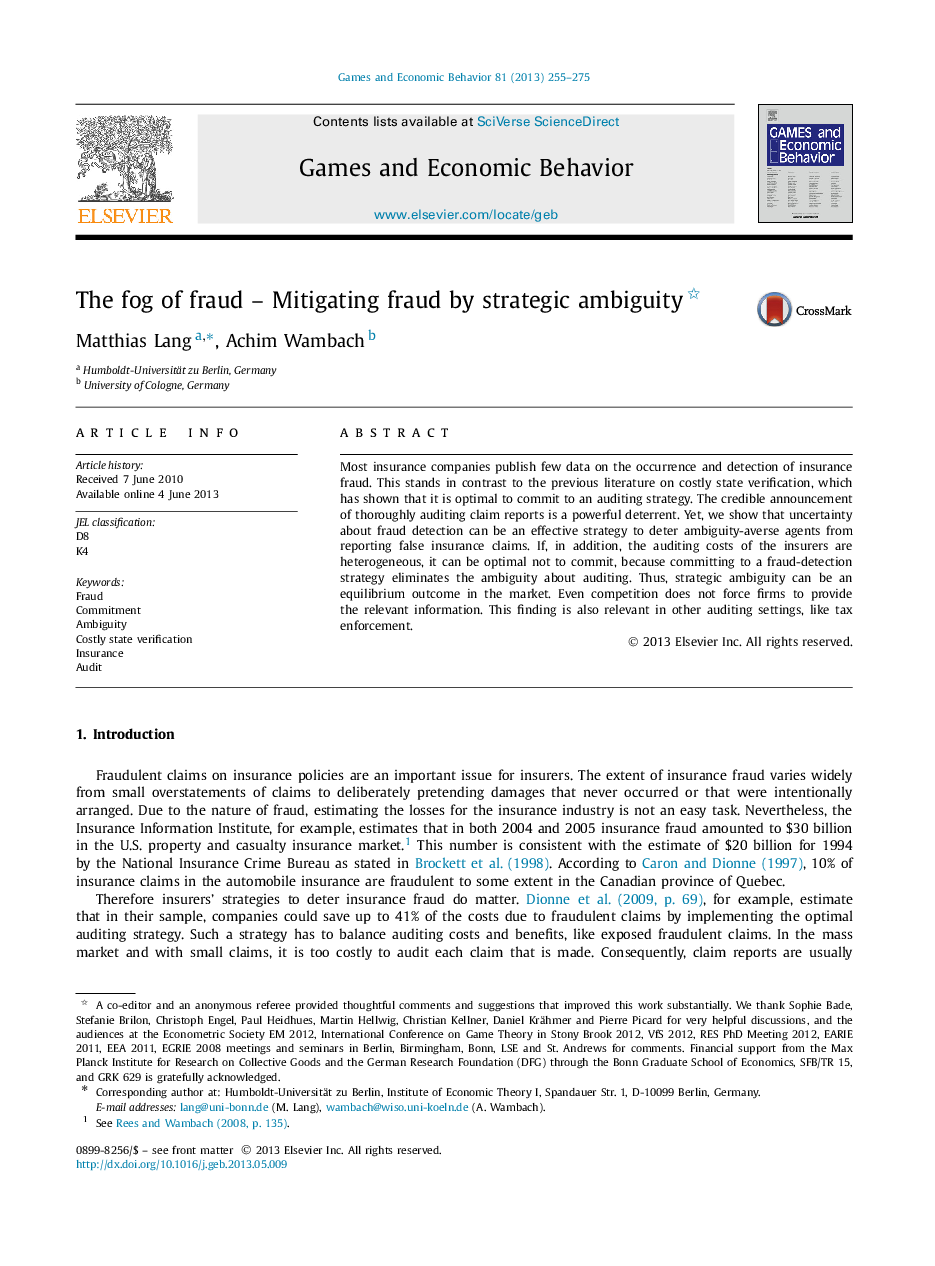| Article ID | Journal | Published Year | Pages | File Type |
|---|---|---|---|---|
| 5071949 | Games and Economic Behavior | 2013 | 21 Pages |
Abstract
Most insurance companies publish few data on the occurrence and detection of insurance fraud. This stands in contrast to the previous literature on costly state verification, which has shown that it is optimal to commit to an auditing strategy. The credible announcement of thoroughly auditing claim reports is a powerful deterrent. Yet, we show that uncertainty about fraud detection can be an effective strategy to deter ambiguity-averse agents from reporting false insurance claims. If, in addition, the auditing costs of the insurers are heterogeneous, it can be optimal not to commit, because committing to a fraud-detection strategy eliminates the ambiguity about auditing. Thus, strategic ambiguity can be an equilibrium outcome in the market. Even competition does not force firms to provide the relevant information. This finding is also relevant in other auditing settings, like tax enforcement.
Related Topics
Social Sciences and Humanities
Economics, Econometrics and Finance
Economics and Econometrics
Authors
Matthias Lang, Achim Wambach,
